Nearly 50% of Cornwall girls not having HPV cancer jab
- Published
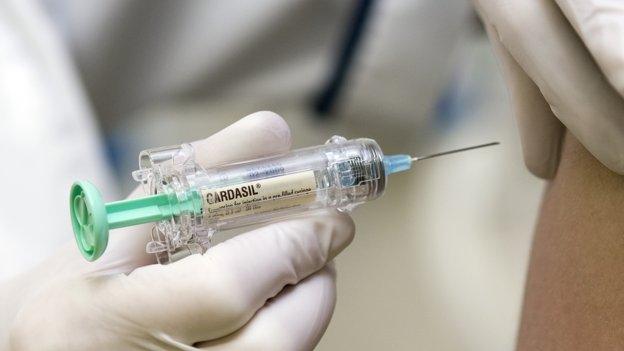
The vaccination programme was introduced in the UK in 2008
Girls in Cornwall who are not being vaccinated against cervical cancer are missing a "life-saving opportunity", a charity has said.
The national average for take-up of the human papillomavirus (HPV) vaccine for 12 and 13 year-olds is 86%, but in Cornwall it is 57%.
Cancer charities called for the vaccine to be introduced in local schools.
Some GPs claimed the figures do not reflect the true picture. NHS England said the data was being reviewed.
It also said it was reviewing the delivery system in the South West but that the county's rural nature made a schools-based programme "more challenging".
The vaccine is offered in schools across most of England, but in Cornwall 12 to 13 year olds must see GPs for the jabs.
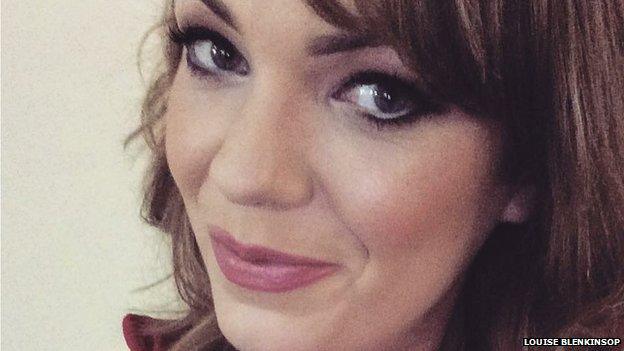
Louise Blenkinsop has had cervical cancer and urged parents to have their daughters vaccinated
Robert Music, chief executive of Jo's Cervical Cancer Trust, said the vaccine would "have a major impact on reducing incidences of cervical cancer" in the UK.
"We have been calling for a couple of years now to change how the programme works in Cornwall," he said.
"A schools-based programme means you can offer it to kids while they're at school rather than having to take them out to have the vaccine twice."

HPV vaccine uptake
Devon - 85%
Torbay - 80%
Plymouth - 76%
Cornwall - 57%
England average - 86%

The HPV vaccination is offered in two separate injections over a one-year period but up until last year it was three jabs. It protects against two strains of the sexually transmitted infection believed to cause 70% of cervical cancer cases.
Uptake in Cornwall has remained well below the national average for the past five years.
However, Dr Sarah Gray, GP Specialist in Women's Health, said the way the figures were recorded was misleading: "What NHS England have counted is the number of jabs in a school year.
"If they don't quite get all three within a year it looks like we've failed," she said.
She also said Cornwall was doing well at immunising older teenage girls.
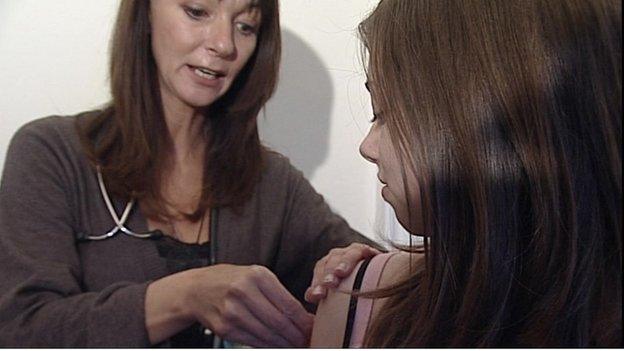
The HPV programme began in 2008 and targets girls before they become sexually active
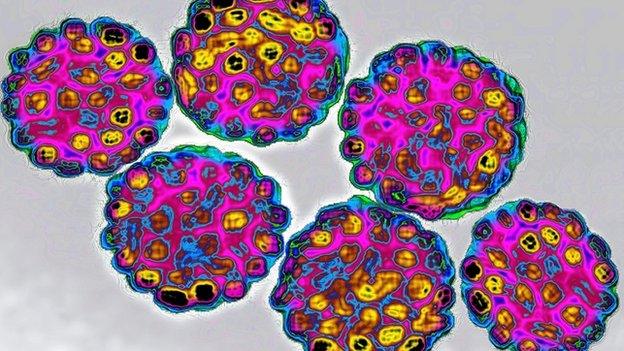
NHS England says some parents oppose the jab as HPV is linked to sexual activity
Louise Blenkinsop from Falmouth, 32, recovered from cervical cancer in 2013 after "gruelling treatment" and was left unable to have children.
"It is ridiculous that Cornwall is being overlooked. Provision should be made equal across the country," she said.
NHS England is responsible for commissioning the vaccine on behalf of Public Health England.
A spokesman said: "Cornwall is a very rural county with a number of factors which make a school based model logistically more challenging to deliver than it would be in many other parts of the country."
He said the system was being reviewed "to assess both clinical effectiveness and value for money" and that checks were being done on last year's data to make sure it was accurate.
- Published22 September 2014
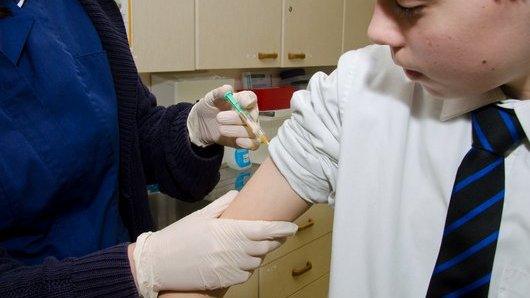
- Published1 February 2013
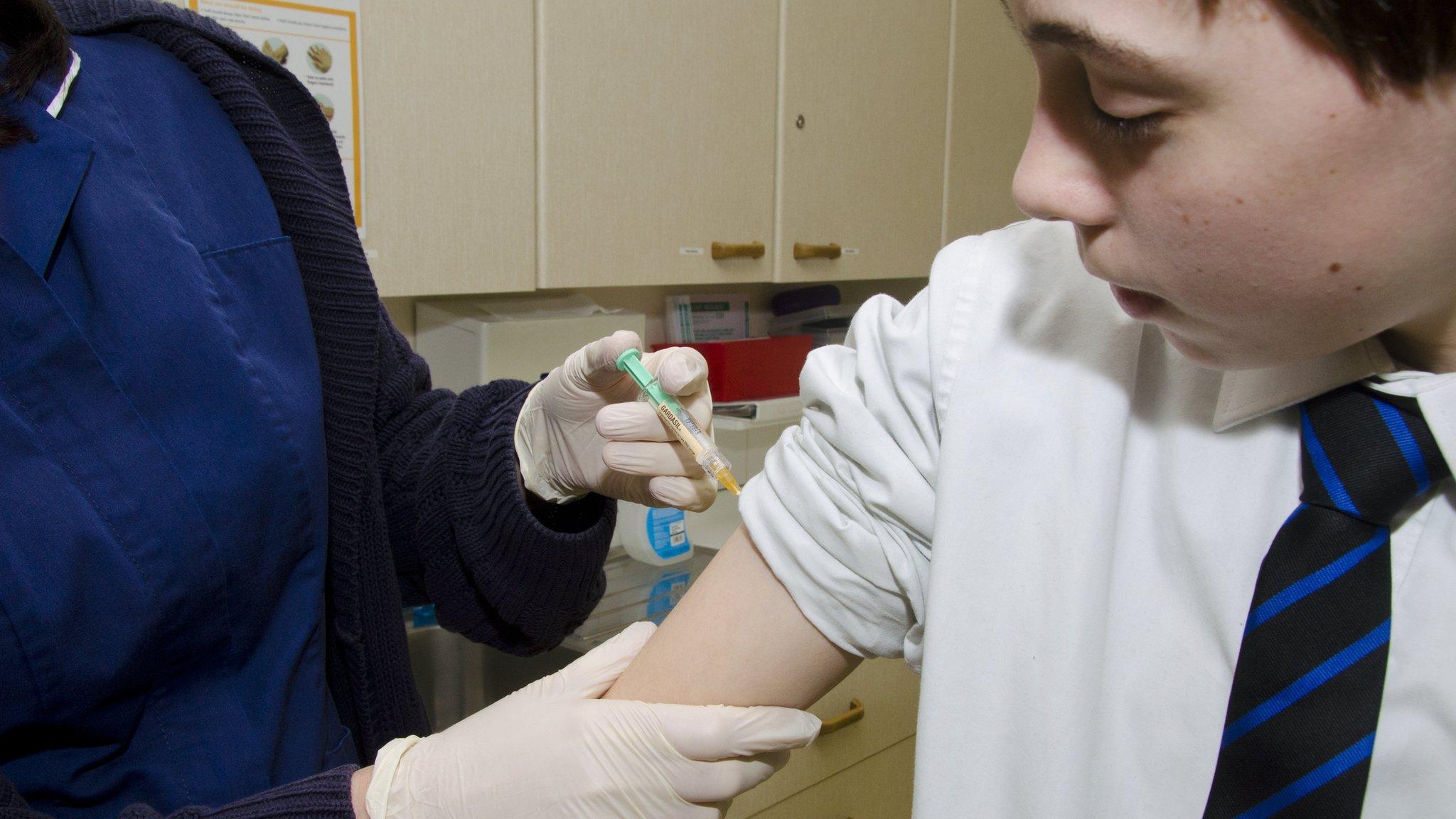
- Published9 July 2013
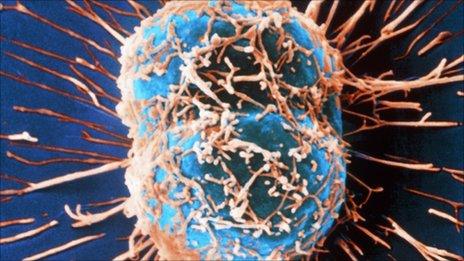
- Published24 November 2011